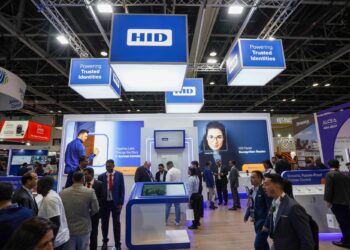New figures from IDC show that shipments of mobile phones to the countries of the Gulf Cooperation Council (GCC) fell 9.4% year on year in 2018 to total 23.6 million units, the lowest since 2013 and down 30% on the market’s peak in 2015 when 33.9 million units were shipped. The global technology research and consulting firm’s newly released Quarterly Mobile Phone Tracker reveals that 5.8 million mobile phones were shipped to the region in Q4 2018, a decline of 2.2% on the previous quarter.
“The GCC’s mobile phone market is undergoing a considerable challenge, with shipments shrinking significantly in 2018,” says Kafil Merchant, a research analyst at IDC “This decline is being caused by a number of factors, including economic uncertainty, a lack of major innovation in new devices, continuous price increases, and lengthening refresh cycles. Since smartphone penetration is already very high in the region, these factors are combining to make consumers question whether it’s worth upgrading their device. Many are concluding that there is simply no good reason to purchase the latest new smartphone on the market.”
Looking at the country-level dynamics, Saudi Arabia – the biggest market in the GCC with 54% share of the region’s mobile phone shipments – declined 2.3% quarter on quarter (QoQ) and 8.2% year on year in Q4 2018. “Growth continues to evade the Saudi market after the major double-digit declines that have characterized the last few years,” says Nabila Popal, a senior research manager at IDC. “However, with such drastic declines now a thing of the past, it seems the market may finally be on the road to recovery. The most significant change in the Saudi smartphone landscape in Q4 2018 was the growth of Chinese brands Huawei and Honor, while the top two brands historically, Samsung and Apple, both declined.”
Quarter on quarter, overall mobile phone shipments were also down 2.4% in the UAE, 5.4% in Oman, and 8.6% in Kuwait, while Bahrain and Qatar enjoyed respective QoQ growth of 2.1% and 7.6% in Q4 2018. Feature phone growth of 12.1% propelled the market in Bahrain, while Qatar witnessed robust 9.8% growth in smartphone shipments – the only GCC market where smartphones grew quarter on quarter.
Looking at the smartphone vendor landscape for the whole year, Samsung and Apple retained the top two spots with 32.3% and 23.7% respective shares of the GCC market in 2018. However, it is important to note that Samsung’s share was down 4 percentage points year on year, while Huawei’s share increased by 8 points over the same period.
“Huawei’s growth in the region, at such a time when leading brands are declining, is to be commended,” says Popal. “There is a tendency to attribute this growth purely to good features, low prices, and great marketing, but Huawei’s success in the GCC has also been influenced by its focus on providing dedicated and customized channel support. By doing this, Huawei is able to respond quickly to local market conditions and consumer preferences, while directly helping its channel partners clear slow-moving stock.”
Looking ahead, IDC does not expect to see any major recovery in 2019. “The arrival of 5G and foldable devices this year may bring some movement to the market as they will finally feed the intense craving from consumers for some genuine innovation,” says Popal. “However, given the high price tags likely to come with these devices, I do not expect them to bring double-digit growth to the struggling smartphone market.”










Discussion about this post